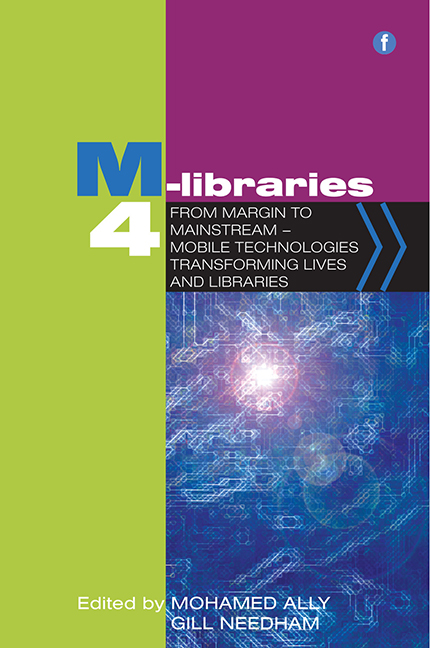8 - Transforming the service: supporting mobile devices with minimal budget and time
Published online by Cambridge University Press: 10 September 2022
Summary
Introduction
Brunel University is a well-established institution with library services that have received increasingly high scores in the UK's National Student Survey, an annual survey of final-year undergraduates across the UK's publicly funded higher education establishments, the results of which are available to universities and prospective students. Eightyone per cent agreement with the statement ‘The library resources and services are good enough for my needs’ in 2009 has increased to 91% in 2012, following the introduction of 24-hour term-time opening, a significant refurbishment, the implementation of RFID (radio frequency identification) for self-issue of books and automated handling and sorting of returns and the introduction of an eating area within the Library. While most areas of the service have been greatly improved in recent years, the focus on developing mobile support continues, but there has been little budget for it. In this area, the Library has maintained a focus on smaller projects, using various low-cost and lowintensity (in terms of staff time) means to enhance its service.
Roving with iPads
One side of the mobile focus was on staff services, and we approached this by buying two iPads in 2011 for use by roving Library staff. They were set up by the Library Systems Team so that account information was securely held centrally and are kept with the Customer Services supervisors. Staff are scheduled to rove in pairs for one-hour slots throughout busy periods of each day, and they began by taking one iPad with them on each rove.
Initially there was some resistance to this amongst those staff who were unfamiliar with tablets, although basic training was given by the supervisors. The most problematic area was the institutional Wi-Fi setup, whereby each device had to be checked out to the individual who was roving so that they could log in to the Wi-Fi network with their own network account; it could take up to five minutes for the checkout to take effect on the iPad (with no alert when it was ready), leading to frustration amongst those who expected it to work instantly, and inevitable instances where the devices were left logged in under a username at the end of the rove.
- Type
- Chapter
- Information
- M-Libraries 4From Margin to Mainstream - Mobile Technologies Transforming Lives and Libraries, pp. 67 - 72Publisher: FacetPrint publication year: 2014

